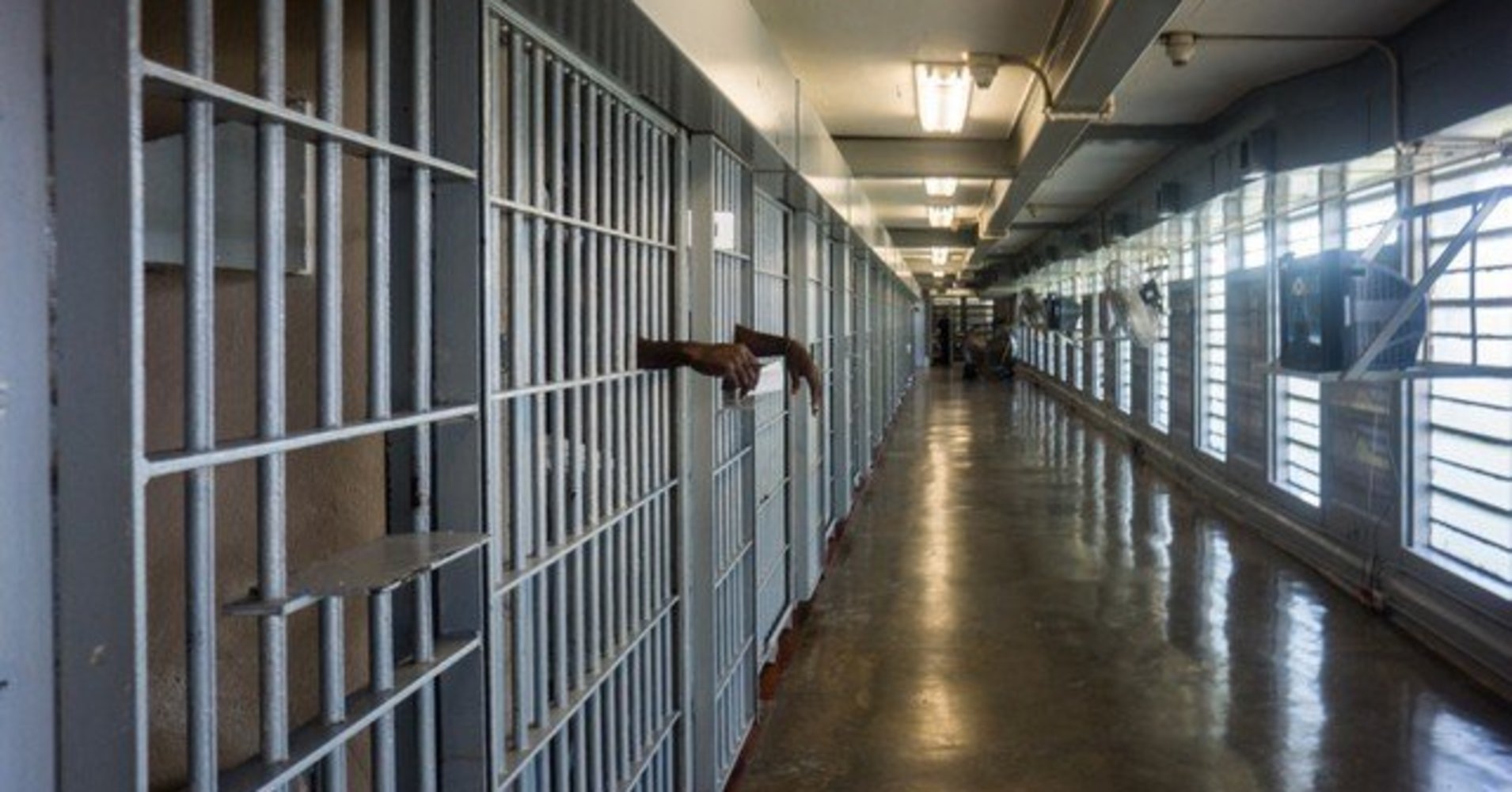[ad_1]

Voters in more than a dozen states will consider ballot proposals next week that would significantly reform their states’ criminal justice systems by making them less punitive and more humane.
These proposals will also serve as a barometer for the American public’s mood on criminal justice reform. The U.S., with less than 5 percent of the global population, is now home to more than 20 percent of the world’s prisoners. Even when not caged, 1 in every 37 adults in the U.S. is under some form of correctional supervision. And although crime is at its lowest levels in decades, the nation’s inmate population remains extremely high.
Here are the most notable developments in criminal justice measures on the ballot in 2018:
Restoring Voting Rights To Florida’s Felons
Florida voters will consider Amendment 4, a proposal that would automatically restore the right to vote for as many as 1.4 million people currently disenfranchised because of prior felony convictions (but not convicted of murder or a sexual offense).
The disenfranchisement of felons prevents an estimated 6 million Americans from voting, including nearly 5 million people who have served out their sentences and are working, paying taxes and raising families. Florida has more disenfranchised people than any other state ― nearly 10 percent of its population can’t vote because of a felony conviction ― and is one of just four states where felons don’t regain their right to vote even after completing their sentence. If approved, the amendment would transform voting in Florida for generations.
Retroactive Application Of Criminal Justice Reforms In Florida
Floridians are also considering Amendment 11, a package of three constitutional amendments. One would allow for retroactive application of criminal justice or sentencing reforms that go into effect in the state, meaning those who are currently serving out sentences for a behavior that later becomes decriminalized or legalized could see a reduced sentence.
Drug Sentencing Reform In Ohio
Ohio voters will consider Issue 1, an initiative that seeks to reduce the state’s prison population and reform drug sentencing. If passed, the state’s Constitution would be amended to make all nonviolent drug possession, use or obtainment offenses a misdemeanor instead of a felony. It would block jail time as a sentence for such drug offenses unless an individual committed a third offense within two years. Importantly, people who were convicted of such offenses prior to the amendment’s pending approval could ask a court to retroactively reduce their conviction to a misdemeanor, even if their sentence hadn’t been completed.
Jailing people for minor probation violations that aren’t crimes would also be banned. The changes would also allow prisoners to apply for a sentence reduction if they have participated in work or educational programs. Finally, the measure would require the state to redirect the money it is saving through cutting incarceration toward various rehabilitative and crime victim programs.
Banning Nonunanimous Juries
Amendment 2 in Louisiana seeks to revise the state’s Constitution by requiring felony convictions be decided by a unanimous jury. Louisianans currently can be convicted of any felony, including murder, by a nonunanimous jury ― meaning that only a majority 10 out of 12 jurors need to agree on the conviction. The nonunanimous jury rule is a vestige of the state’s white supremacist roots and was added to the state’s constitution at the state’s convention in 1898.
The intent of the the nonunanimous jury rule was made clear by the words of Thomas Semmes, a former Confederate senator, at the time when he said lawmakers at the convention fulfilled their “mission” to “establish the supremacy of the white race in this State to the extent to which it could be legally and constitutionally done.” The rule has resulted in felony trials likelier to end in a guilty verdict, an outcome that has contributed to the Louisiana’s alarmingly high incarceration rate.
Legalizing Marijuana
Voters in four states are considering legalizing marijuana, either for adult recreational or medical purposes. In another state, multiple cities are considering decriminalizing the drug.
Six cities across Ohio will consider local measures aimed at decriminalizing marijuana. Possession of up to 200 grams of marijuana is currently a misdemeanor in the state and punishable by a fine of up to $250 or as many as 30 days in jail. These local measures would not change state law but could make marijuana enforcement a lower priority for local police, thereby protecting marijuana users from some criminal penalties.
If approved, Michigan’s Proposal 1 would allow adults 21 and over to buy, grow, use and possess marijuana for recreational purposes.
Under the measure, adults could be in possession of 2.5 ounces of marijuana, a provision similar to the state’s medical marijuana law approved in 2008. Adults can also grow up to 12 marijuana plants in their homes for personal use. Additionally, the initiative legalizes the cultivation of industrial hemp, which can be used to make textiles, biofuels and foods. Marijuana sales will be accompanied by a 10 percent excise tax, revenue that will be used to fund research, education and the repair and maintenance of roads and bridges. A recent study projected that marijuana legalization in Michigan would eventually lead to $130 million in new tax revenue for the state with an industry that could grow to a value of $800 million by 2024.
Utah voters will consider Proposition 2, which would allow patients to legally use, possess and purchase marijuana for medical purposes for conditions such as HIV, multiple sclerosis, PTSD, epilepsy, autism, cancer and Alzheimer’s disease.
However, Utah residents may get access to medical marijuana regardless of whether Proposition 2 passes. In October, Utah medical marijuana advocates and state lawmakers agreed to a compromise bill that would legalize medical marijuana in the state, but with some differences from the ballot initiative. The bill would require a full vote in the state legislature and a signature from the governor to become law.
Measure 3 on North Dakota’s ballot would legalize the use, purchase and possession of marijuana for recreational purposes. But unlike traditional legalization measures, specific parameters of the program are not defined in the text of the initiative, so additional regulatory and tax framework would have to later be established. However, the measure does have some progressive contours that aim to repair damage done by the failed war on drugs. If passed, there would be an automatic process created for North Dakotans to have their marijuana-related convictions expunged from their records. It also makes the state liable for any damages that are the result of expungement lawsuits.
Voters in Missouri will consider three separate proposals to legalize medical marijuana on their ballot. All three would legalize the use, purchase and possession of marijuana for medical purposes and would allow the state to set up a regulatory framework for licensed dispensaries. They each differ considerably in their approach to taxes, home growing and qualifying conditions, among other differences.
The Use Of Deadly Force By Police
Initiative 940, which is on the ballot in Washington state, would introduce a series of measures intended to help hold police more accountable when they use unjustified deadly force.
If passed, the initiative would strip specific language from state code that requires prosecutors to show that an officer acted with “malice” in order to be convicted. That language is unique to the state and has made it extraordinarily difficult for prosecutors to criminally charge an officer who uses deadly force recklessly. Whether the use of deadly force by the officers is justified would be evaluated through a “good faith test” ― a new standard that would be used to examine whether an officer in the same situation would reasonably believe that the use of deadly force was necessary. The initiative would also impose an independent investigation into all uses of deadly force by police. And it would require police to receive de-escalation, mental health and first aid training, as well as mandate that law enforcement officers have a duty to render first aid.
Crime Victims’ Rights
Voters in six states ― Kentucky, Nevada, Oklahoma, North Carolina, Georgia, Florida ― are considering separate measures that aren’t entirely similar but could broadly strengthen a crime victims’ ability to testify at hearings, the right to be treated with fairness and consult with prosecutors in case. These proposals, variations of so-called “Marsy’s Law” amendments that have already been approved in six states since 2008, are often celebrated for giving victims a louder voice in criminal cases. But critics argue the measures can also harm defendants’ right to a fair trial and can add to a larger framework that creates a more punitive system of justice.
[ad_2]
Source link

